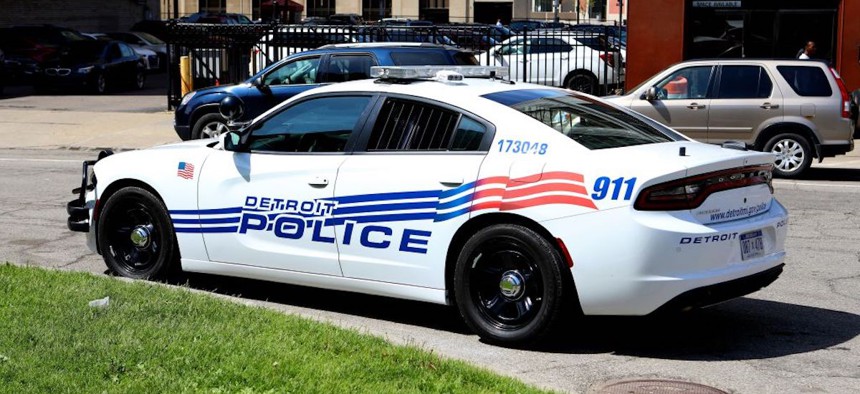Michigan to transition the state’s fleet to zero emission vehicles by 2040

Raymond Boyd/Getty Images
The conversion to ZEVs can help reduce gas and vehicle maintenance costs, reduce pollution and improve public health, some say.
This story is republished from Michigan Advance. Read the original article.
Michigan Gov. Gretchen Whitmer on Tuesday signed an executive directive to convert 100% of the state’s fleet to zero-emission vehicles (ZEVs) by 2040.
“With today’s executive directive, I am directing state agencies to begin the process of converting vehicles owned and operated by the state to ZEVs by 2033 for light-duty vehicles and 2040 for medium and heavy-duty vehicles,” Whitmer said in a statement. “Getting this done will help drive demand of Michigan-made electric vehicles, lower gas and maintenance costs for the state since ZEVs cost far less to fuel and maintain and reduce air and noise pollution in our communities.”
The directive instructs Michigan state departments to prioritize ZEVs in their fleet; prioritize transitioning vehicles that travel the most miles first; prioritize transitioning vehicles in communities historically impacted by higher pollution; install electric vehicle supply equipment, including publicly accessible chargers, in high-density areas; and establish clear exemption criteria for specific fleet vehicles and offer alternative emission reduction options including hybrids.
The decision earned praise from within the auto industry as well as clean energy and climate advocates.
“The [United Auto Workers] applauds the State of Michigan for showing that the electric vehicle transition doesn’t have to be a race to the bottom,” Shawn Fain, United Auto Workers President said in a statement.
“We encourage the state to purchase union-made EVs for all state vehicles, giving America’s autoworkers their fair share of this historic moment for the American auto industry. On behalf of our 400,000 active members and 600,000 retirees, I want to thank and commend Governor Whitmer on notching another win for the working class,” Fain said.
Glenn Stevens Jr., executive director of MICHauto, and vice president of automotive and mobility initiatives for the Detroit Regional Chamber, said the transition is a significant step in the state’s efforts to be a leader in the clean energy economy.
Evergreen Action, a clean energy and climate advocacy organization, also applauded the decision.
“Today’s announcement is one of the strongest commitments in the country in electrifying a state’s fleet, and it will be powered by a clean Michigan electricity grid. The governor’s directive takes a smart step to target pollution reductions where they’re needed most by prioritizing transitioning vehicles located in communities that have been historically overburdened with higher pollution,” Courtney Bourgoin, Evergreen Action’s Midwest senior policy and advocacy manager said in a statement.
“From committing to 100% clean electricity to transitioning 100% of its government fleet to clean vehicles, Michigan has taken huge steps this year to combat climate change, improve public health, and lead the way in building a clean energy economy,” Bourgoin said.





